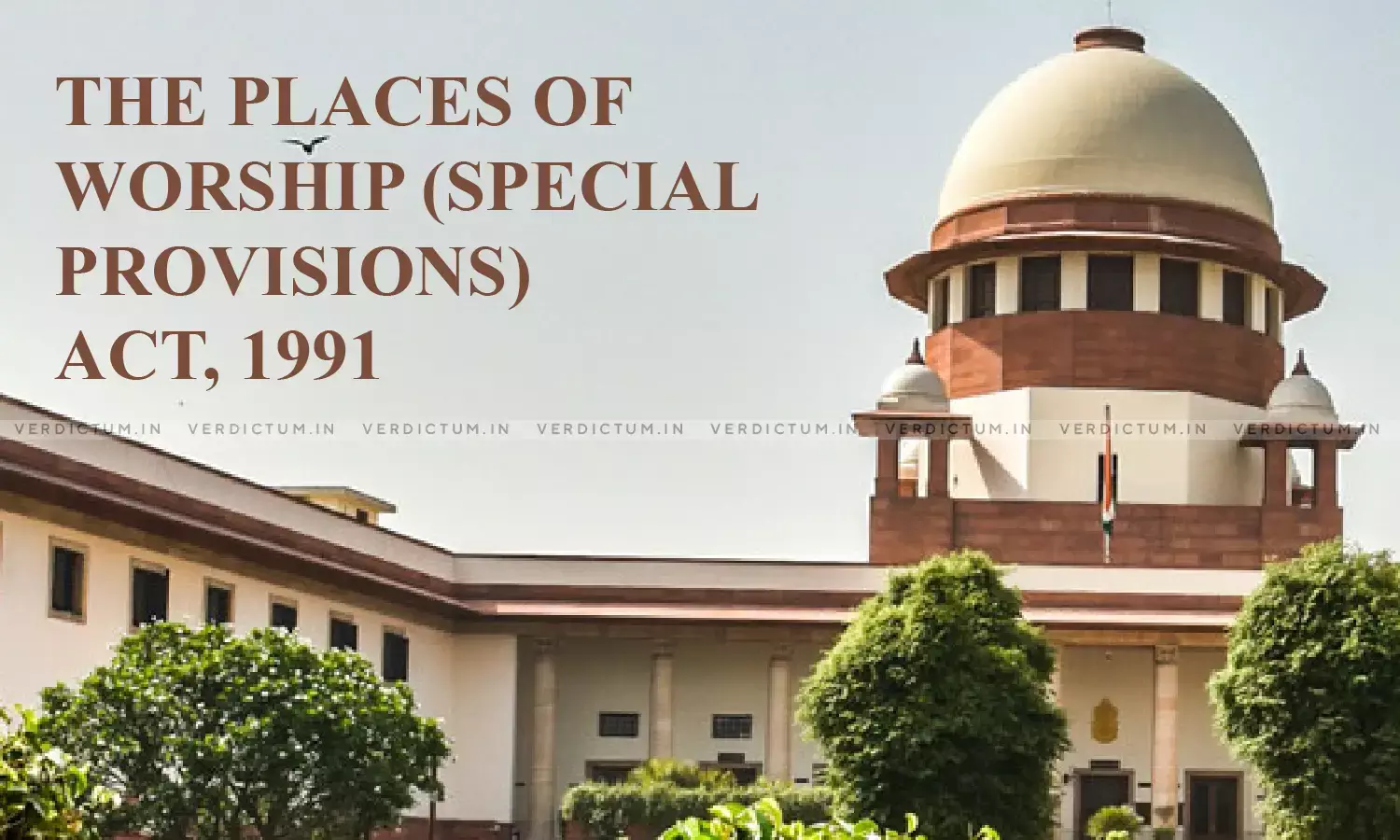Breaking: Three Judge Bench Of Supreme Court To Hear Challenge To Places Of Worship Act On October 11

The Supreme Court fixed October 11 as the date for hearing a batch of cases challenging the Places of Worship (Special Provisions) Act, 1991. The cases will be heard by a three-judge Bench.
The Bench comprising of Chief Justice U. U. Lalit, Justice S. Ravindra Bhat and Justice P. S. Narasimha said that the matters will be taken up by a Bench of three judges since there were observations in the Ayodhyay Judgment about the statute. The Bench today allowed all intervention petitions. Intervenors have been granted liberty to file written submissions, no longer than five pages. The matter will be listed on October 11. Parties have been directed to complete pleadings before that date.
Advocate Vishnu Shankar Jain submitted that the fundament right to judicial review has been taken away by the statute.
Dr. Subramanya Swami submitted that he has sought a reading down of the provision to exclude the Kashi and Mathura temples from the purview of the Act.
Senior Advocate Rakesh Dwivedi appearing for Ashwini Kumar Upadhyay submitted that the question of reading down will only arise if the Court finds that provisions are unconstitutional.
Solicitor General Tushar Mehta appearing for the Union of India sought time to file a reply and the same was granted by the Court.
Advocate J. Sai Deepak appeared for Maharaja Kumari Krishna Priya, the daughter of Kashi Naresh Vibhuti Narayan Singh of Varanasi and two others who have moved intervention application supporting the Writ Petition of Ashwini Upadhyay.
Senior Advocate CS Vaidyanathan appearing for some intervenors submitted that at least 15 intervention applications have been filed.
The Chief Justice replied to the submission of Rakesh Dwivedi for reference to a Constitutional Bench saying that let the three-judge bench consider that question.
At least eight substantial petitions challenging the said statute have been filed before the Court, which will have a bearing on the ongoing disputes in the Gyanvyapi dispute, Krishna Janmabhoomi case and other similar ongoing litigations, including the Qutub Minar dispute. Three lawyers, including Ashwini Kumar Upadhyay, Dr. Subramanian Swamy and three spiritual leaders have approached the Court.
Since the Court had refused to entertain any new petition while asking new parties to instead file intervention applications in the pending cases, many intervention petitions have been filed in the batch of matters.

